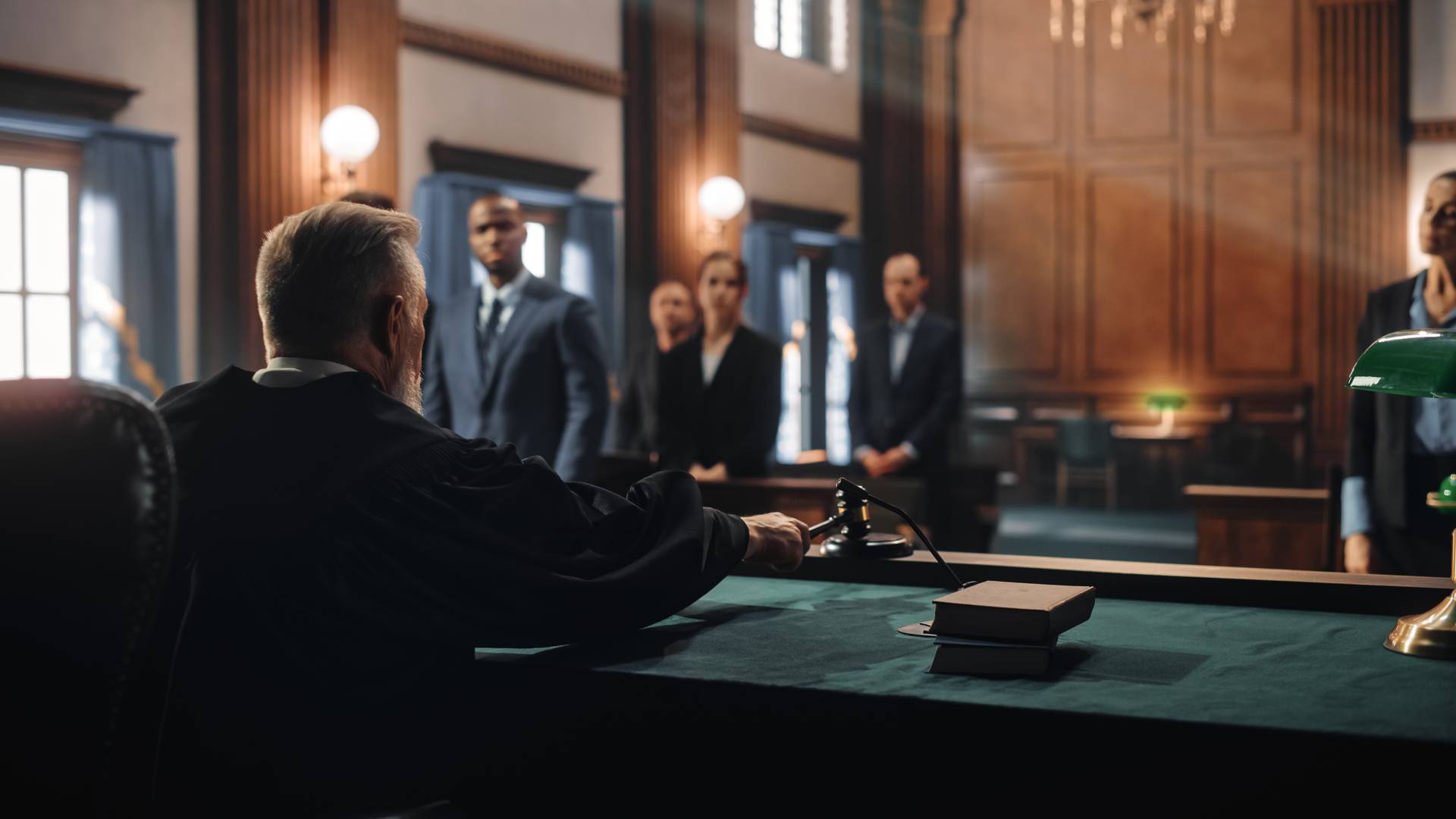
Violent Crime Attorney in Kentucky
Charged with a Violent Crime in Louisville? Get Help Now
Violent crimes are serious offenses that require a comprehensive understanding of Kentucky's legal system. Charges such as assault, robbery, and homicide carry severe penalties if convicted. The complex nature of these charges means it's crucial to have a dedicated violent crimes attorney in Kentucky to navigate the intricacies of state and federal laws effectively.
In Kentucky, violent crime statutes are designed to protect the community and ensure justice for victims, often resulting in substantial penalties for those found guilty. Facing such charges can be overwhelming without experienced guidance. This is where William M. Butler, Jr., Attorney at Law steps in, offering seasoned representation and strategic defense planning.
Connect with an experienced violent crime attorney in Kentucky from the comfort of your home. We offer confidential virtual consultations—call (502) 237-0871 or contact us online today.
Understanding Violent Crimes in Kentucky
In Kentucky, "violent crime" is an umbrella term that covers a broad range of criminal activity, the central theme of which is the threat or use of force to inflict harm upon another person. The penalties for violent crimes are substantial and vary widely based on the specific offense, its classification (misdemeanor or felony), the degree of harm caused, the presence of weapons, and the circumstances of the crime.
As your violent crimes defense attorney in Kentucky, we will ensure you have a clear and comprehensive understanding of the precise charges leveled against you and their potential ramifications under Kentucky law.
Common types of violent crimes charges we defend in Kentucky include, but are not limited to:
Criminal Homicide Offenses (KRS Chapter 507)
These are among the most serious charges a person can face.
- Murder (KRS 507.020): Intentionally causing the death of another person; or wantonly engaging in conduct that creates a grave risk of death, thereby causing death under circumstances manifesting extreme indifference to human life. Murder is classified as a capital offense in Kentucky.
- Manslaughter (KRS 507.030):
- First-Degree Manslaughter: Intentionally causing the death of another person under circumstances that do not meet the threshold for murder (e.g., acting under an extreme emotional disturbance); or Wantonly causing the death of another person.
- Second-Degree Manslaughter: Recklessly causing the death of another person.
- Reckless Homicide (KRS 507.050): Grossly negligent actions leading to another's death, without the level of intent or recklessness seen in murder or manslaughter.
- Fetal Homicide (KRS 507A.020 et seq.): Causing the death of an unborn child.
Assault and Related Offenses (KRS Chapter 508)
Why Choose a Violent Crime Defense Lawyer in Kentucky
Choosing the right violent crime attorney in Kentucky is pivotal. With over 35 years of focus on criminal defense, William M. Butler, Jr., Attorney at Law provides comprehensive support tailored to each client's specific needs. This commitment ensures we build robust defense strategies that factor in all legal and personal aspects of your situation.
Clients often choose us for our proficiency in communication, which not only aids in effective courtroom representation but also ensures clarity and understanding at each stage of the process. Our local knowledge of Kentucky's court systems further solidifies our ability to advocate successfully on your behalf.
Our firm’s commitment to keeping abreast with the latest legal precedents and legislative changes gives us a tactical advantage. By continuously enhancing our knowledge base, we ensure that our defense strategies are not only responsive but also proactive, offering a forward-looking approach to handling charges with the utmost diligence. This allows us to anticipate prosecutorial tactics and prepare for scenarios that give our clients the best chance of a favorable outcome.
Take the Next Step with Confidence
If you're facing violent crime charges, it's essential to act swiftly and wisely. At William M. Butler, Jr., Attorney at Law, we're here to relieve your stress by offering informed and strategic legal advice. Contact us today for a consultation to understand your situation and the steps we can take together.
Our firm prides itself on personalized attention, effective communication, and dedication to each client's defense. Call us at (502) 237-0871 or reach out online to take the first step towards safeguarding your future with a team you can trust.
-
"Your Ace in the Hole!"When you hire William Butler Jr., you can rest easy knowing he takes each case as if it were his family he’s representing. His knowledge and expertise is astounding!- Former Client
-
"Outstanding and Caring"Mr. Butler is an outstanding and caring attorney. I know he has my best interest at heart I would not have another attorney defend me.- Sara L.
-
"Kind and Knowledgable"Mr. Butler was very kind and knowledgeable. He also went above and beyond what I expected him to do. I do recommend his services to anyone who would need them.- Nancy B.
-
"A Great Human Being"William Butler Jr. is awesome. He always answered my questions and never promised or said something if he wasn't sure that it was going to happen.- Lorena H.
-
"Top-Notch Negotiator"His negotiation skills are top notch and he is kind and understanding. I couldn’t have asked for a better outcome to my case.- Heather D.
-
"Easy to Work With"Superior service - if I could rate 10 stars I would. Down to earth and easy to work with and will fight tooth and nail to do what it takes to achieve the goal.- Russ R.
-
"Above and Beyond"Great lawyer, he went above and beyond for my case, always kept the positive in perspective, and got me a favorable result. I would recommend him to anybody.- Darius O.
-
"A Brilliant Lawyer"He is amazing; the best attorney I ever met. He is a brilliant Criminal Defense Lawyer...In person, he is so kind but in court, he is a shark!- Dayany W.
Frequently Asked Questions About Violent Crimes Defense in Kentucky
What Should I Do If Accused of a Violent Crime in Kentucky?
Stay calm, exercise your right to remain silent, and contact a violent crime defense attorney immediately. Do not speak with police without legal counsel. Begin documenting any relevant details and gathering potential evidence such as messages, photos, or witness names that may support your defense.
How Are Violent Crime Cases Handled in Kentucky Courts?
Violent crime charges are typically tried in state courts, though federal court may be involved in serious cases like interstate crimes or those involving firearms. The process includes arraignment, discovery, pre-trial hearings, and potentially a jury trial. A knowledgeable attorney will guide you through each stage, building a strong, strategic defense while challenging the prosecution’s case at every turn.

YOUR CRIMINAL DEFENSE LAWYER
- With over 35 years of experience defending clients
- Who is confident and proficient in trial
- Who speaks your language and the language of prosecutors

Hear From Our Happy Clients
"He Never Refused a Phone Call"